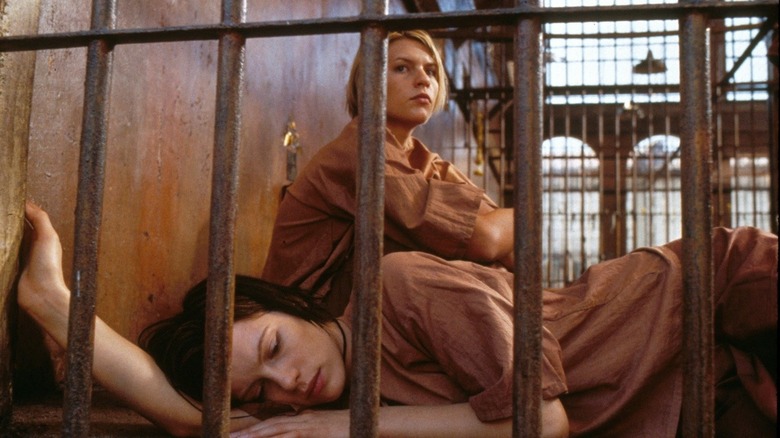[ad_1]
Claire Danes earned a everlasting place in lots of a tv viewer’s coronary heart again in 1993 when, on the age of 14, she performed Angela Chase on “Depraved” screenwriter (and author of the stage musical’s e book) Winnie Holzman’s short-lived ABC drama “My So-Referred to as Life.” It was uncommon to see a teenage character portrayed by an actor of the identical age (Danes was really a 12 months youthful than the 15-year-old Angela), and what a startling distinction it made. Danes effortlessly conveyed the fear and elation of being a highschool freshman in America, which meant she may go from heartbreakingly sympathetic to downright irritating on the flip of a dime. Such are youngsters. We had been all there as soon as.
A few of us additionally had the chance as youngsters to go away the communities during which we had been raised and go to different cultures and nations. On reflection, these had been very important experiences that broadened our understanding of the world and taught us the significance of empathy. That is how we develop and, hopefully, grow to be extra enlightened human beings.
It is one factor to go to one other nation as an trade pupil, and fairly one other to take action as a burgeoning film star who’s making a serious studio movie. So when Claire Danes was jetted off to the Philippines within the late Nineteen Nineties to shoot Jonathan Kaplan’s “Brokedown Palace” (a riff on Alan Parker’s “Midnight Categorical”), she was blanketed in privilege; nevertheless, on condition that the movie was shot in poverty-stricken areas of the nation (which was doubling for Thailand), she was uncovered to circumstances the likes of which had been disconcerting international to her.
It had an impact on her. And when she shared her trustworthy response to all of it with the U.S. media, she incurred the fury of the Philippines authorities.
The Philippines v. Claire Danes
In a 1998 interview with Premiere journalist Christine Spines, Danes opened up about what, to her, felt like a hellish ordeal. Right here is the passage because it appeared within the erstwhile film journal:
“The shoot was plagued with malaria and hepatitis outbreaks, and needed to be shut down for a number of sick days. ‘It was simply so laborious,’ Danes says, now comfortably ensconced at a Beverly Hills lunch joint, the place she’s gobbling up a plate of extra-rare ahi. ‘The place simply f***ing smelled of cockroaches. There is not any sewage system in Manila, and other people don’t have anything there. [We saw] individuals with, like, no arms, no legs, no eyes, no tooth. We shot in an actual [psychiatric] hospital, so takes could be interrupted by wailing ladies — like, ‘Lower! Screaming particular person.’ Rats had been in every single place.'”
When the nation’s then president Joseph Estrada caught wind of Danes’ feedback, he introduced down ye olde ban hammer. “She shouldn’t be allowed to return right here,” he advised CBS. “She mustn’t even be allowed to set foot right here. Her remarks had been uncalled for.” (It is value noting that the 1998 CBS story elided the “[We saw]” qualifier from Danes’ quote, which makes her remark sound a great deal worse than it was.)
Since Danes went 90210 wild on the Philippines, she has been persona non grata within the nation, and her movies can’t be screened. There isn’t any available proof that the ban has been lifted, so Filipinos have not been in a position to see Danes’ Primetime Emmy Award-winning performances within the HBO movie “Temple Grandin” and the Showtime collection “Homeland.” In the meantime, Danes continues to be getting roasted for having as soon as been a sheltered 19-year-old who spoke with out empathy, and whose worst skilled alternative was most likely turning down Kate Winslet’s position in “Titanic.” The world is a deeply foolish place.
[ad_2]




